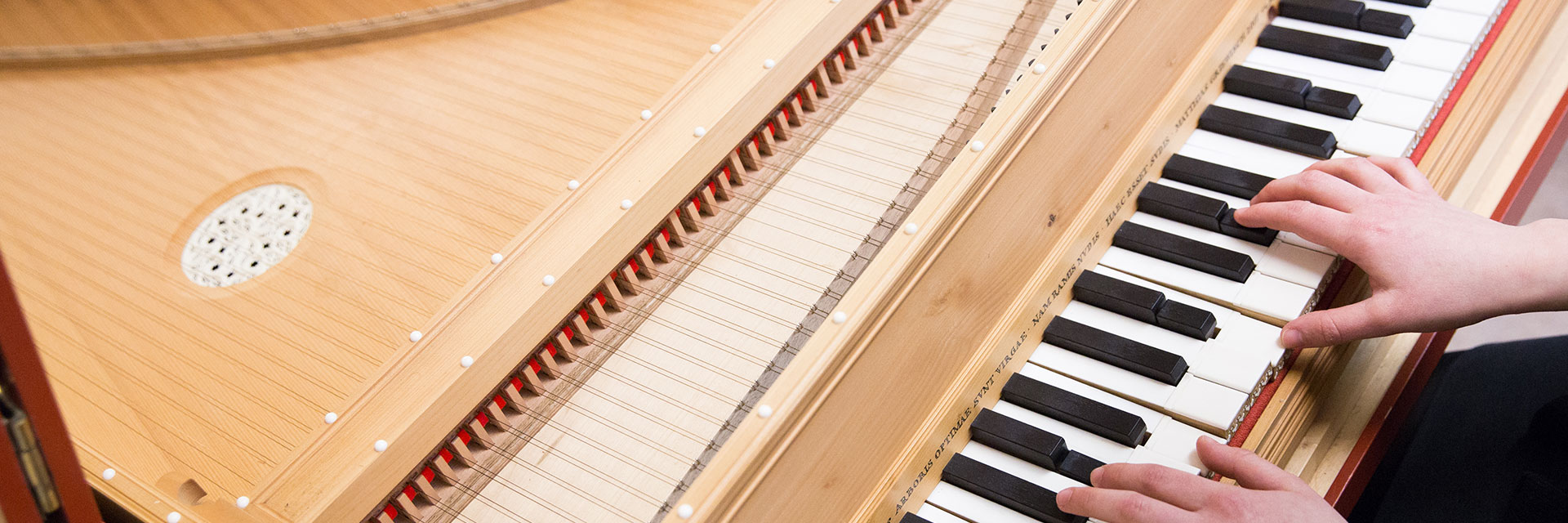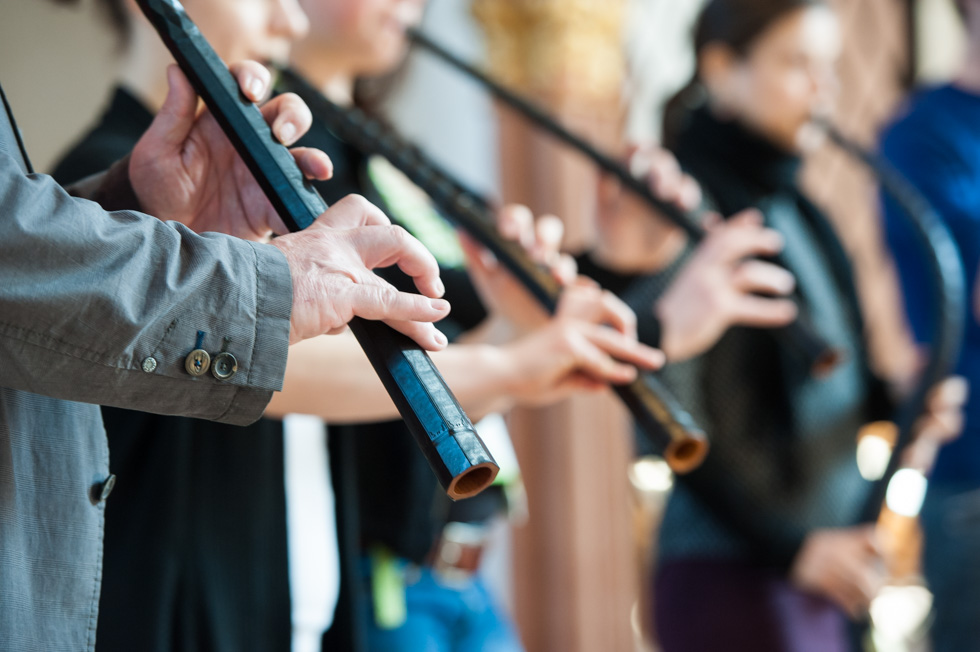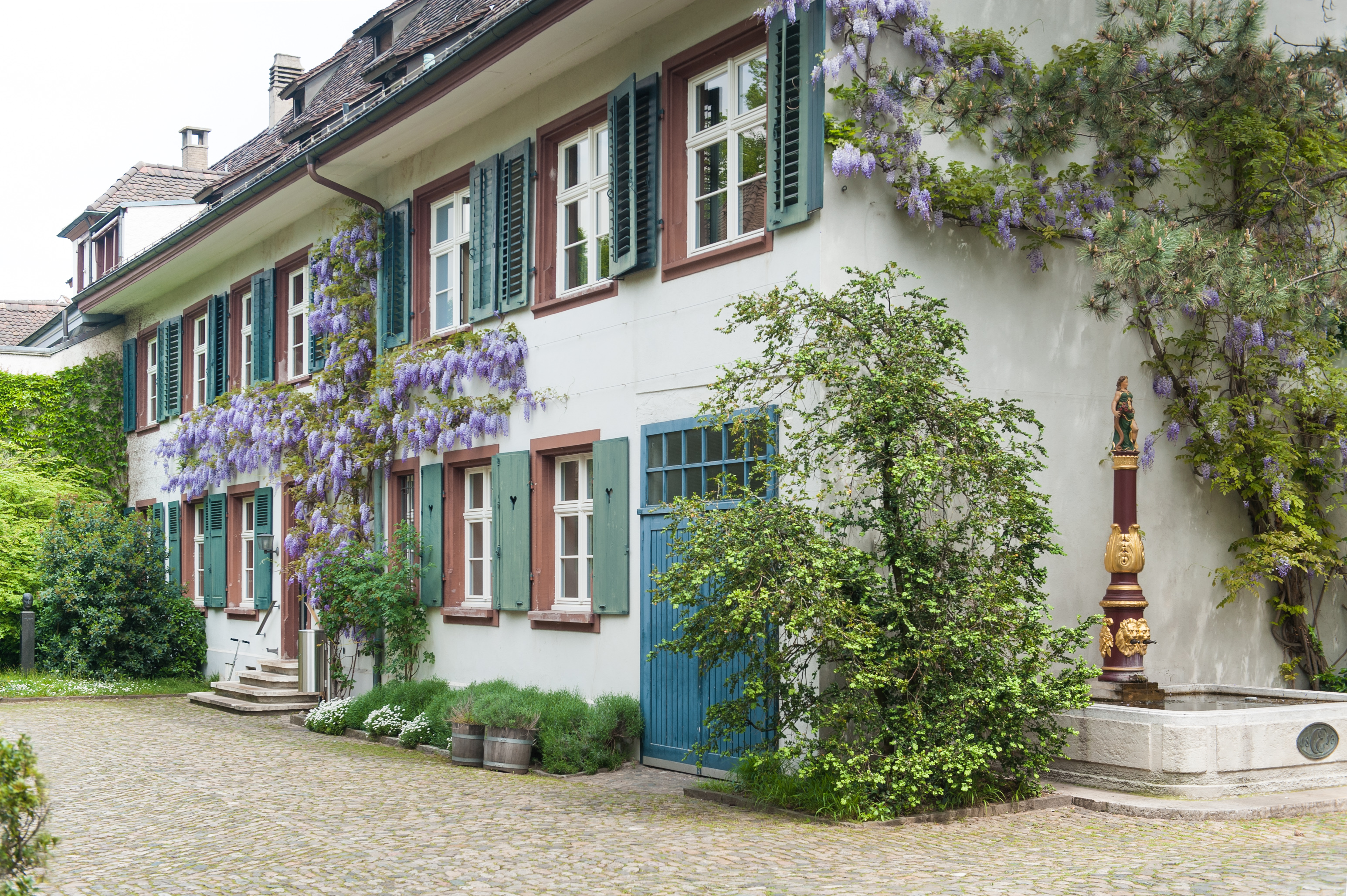Specialised Performance in Early Music Thoroughbass / Ensemble Direction
Key data
- Degree
- Master of Arts FHNW in Spezialisierter Musikalischer Performance - Alte Musik Generalbass / Ensembleleitung
- ECTS points
- 120
- Study start
- in autumn
- Duration
- 4 semesters
- Teaching language
- German (level B1 is required)
- Place
- Campus Musik-Akademie Basel
- Application fee
- 200 CHF
- Semester fee
- 750 CHF (CH) | 1000 CHF (EU/EFTA) | 1250 CHF (Not-EU/Not-EFTA) More Fees
The registration window is open from mid of December until the end of January.
Mobile navi goes here!
A study programme for very gifted harpsichordists
This programme is aimed primarily for gifted keyboard players (especially harpsichordists) who have an excellent basis in thoroughbass as well as the technical ability, theoretical knowledge and creative flair necessary to deal with this subject in a comprehensive way. The programme makes use of the unique competences and resources of the Schola Cantorum Basiliensis (SCB). In addition to instruction in the Thoroughbass Major, there is a smaller unit of practical instrumental tuition to hone the students’ technical proficiency.
An essential addition to the training in thoroughbass is a minor in ensemble direction, since the two fields are closely interconnected.
Students should be able to play thoroughbass according to the given regional traditions and chronological developments. They learn to use thoroughbass to direct vocal and instrumental ensembles of all sizes, from small musical formations to orchestras and large vocal ensembles, and acquire the necessary tools and confidence to put together innovative programmes of their own design. Graduates of this Master’s Degree course are capable of dealing competently with all types of tasks requiring a knowledge of thoroughbass.
Students will also perfect their musicianship, and will be expected to work regularly with their own ensembles during their studies.
No social media links available.


